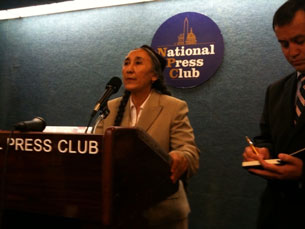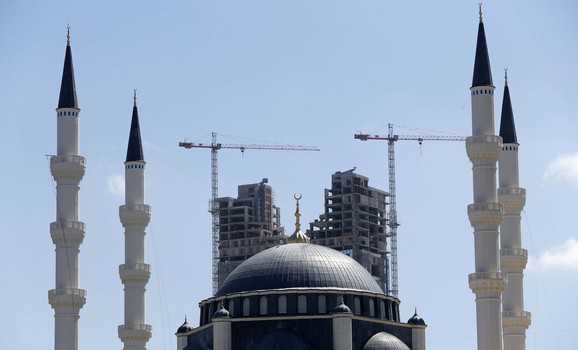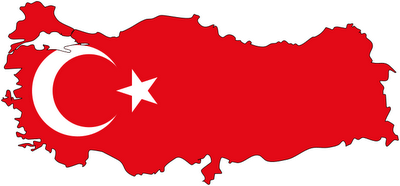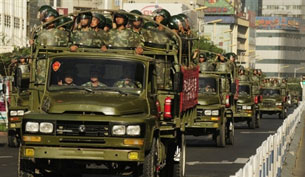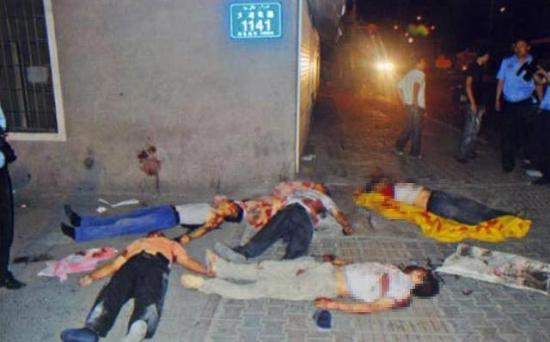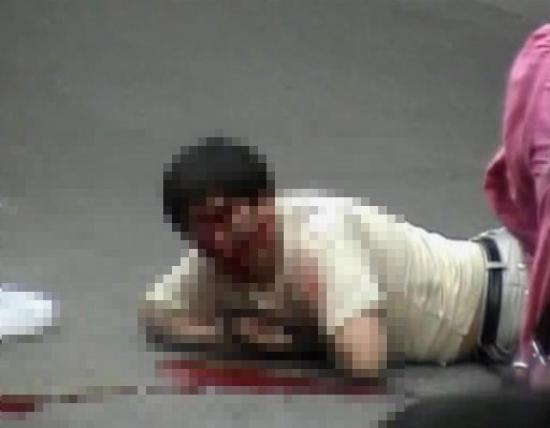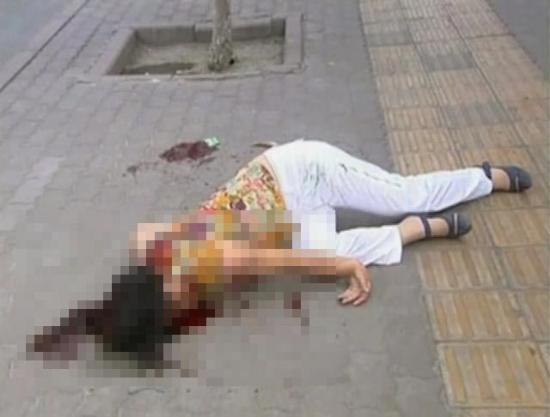2009-07-09
A prominent exile Uyghur leader says China prompted violent ethnic clashes in the country’s northwest.

Rebiya Kadeer speaks at the National Press Club in Washington, July 6, 2009.
WASHINGTON—China’s government is stirring up ethnic tensions that have led to Chinese violence against the mostly Muslim Uyghur ethnic minority in the country’s northwest, according to Uyghur activist Rebiya Kadeer.
The leader of the Washington-based Uyghur American Association and Munich-based World Uyghur Congress said the people of China aren’t to blame for the recent wave of violence in Urumqi because they were being led astray by a “tyrannical” government.
“I blame the [Chinese] government as a source of cruelty,” Kadeer said in an interview.
Large numbers of majority Han Chinese are reported to have attacked Uyghurs with sticks, metal clubs, and machetes in the capital of China’s Xinjiang Uyghur Autonomous Region, Urumqi.
“The tragic incident that took place yesterday in Urumqi is a brutal and inhumane [form of] violence which was committed by some Chinese people and instigated by the Chinese government,” she said.
Kadeer said the official media were stirring up anger in the Chinese community against Uyghurs by showing images only of Han Chinese injured in the July 5 riots that left at least 156 dead and more than 1,000 injured.
Those riots were touched off by a clash between Uyghur and Han Chinese factory workers in China’s southern province of Guangdong in late June. Uyghurs in Urumqi held what Kadeer called a “peaceful” demonstration in protest of Chinese authorities’ mishandling of that incident, leading to a standoff with armed police.
Counter-charges
“The inability to deal properly with a…peaceful demonstration—causing civilian death—is the responsibility of the government,” Kadeer said.
But in a televised speech Monday, XUAR Governor Nur Bekri explicitly blamed the clashes on Kadeer, a former businesswoman who was jailed by Chinese authorities for “subversion” before she was paroled and admitted to the United States.
Chinese authorities have accused her repeatedly of fomenting separatism among Uyghurs.
Both Kadeer and a spokesman for the World Uyghur Congress, Dilshat Rashit, have rejected the charge.
“One should look at how the incident occurred. When Uyghurs took to the streets in peaceful protest, they didn’t have weapons in their hands. Instead they held the Chinese flag. The Uyghurs didn’t say they would kill or beat people. They demanded justice from the authorities,” Kadeer said.
“The Chinese authorities didn’t give the chance for a peaceful end to a peacefully started demonstration…The Chinese authorities are accountable for these atrocities.”
Original reporting by RFA’s Uyghur service. Uyghur service director: Dolkun Kamberi. Translated by Shohret Hoshur. Written for the Web in English by Joshua Lipes. Edited by Sarah Jackson-Han.
https://www.rfa.org/english/news/uyghur/exiledleader-07092009175907.html

